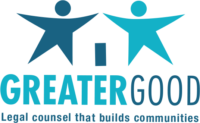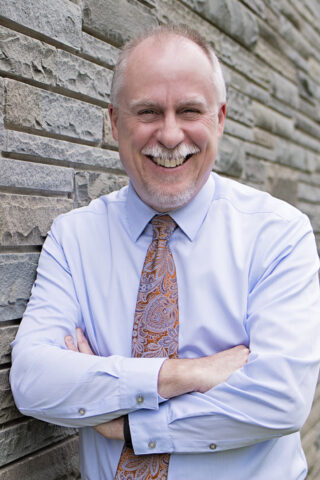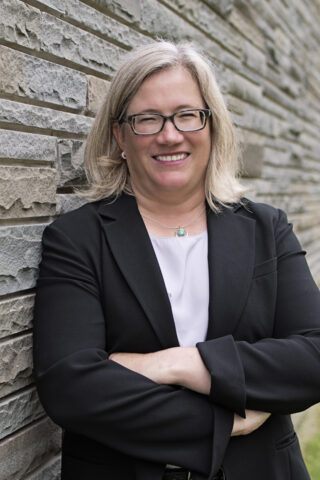Purpose
Greater Good LLC (Greater Good) respects the privacy of our website visitors. Our Privacy Policy (the “Policy”) will help you understand how we will collect, use, and share information about you. By accessing this website (the “Site”), you accept the terms of this Policy.
Other websites that are linked from or to this Site may contain privacy provisions that differ from the provisions of this Policy. This Policy applies only to this Site. We are not responsible for the content or privacy practices of any websites linked to or from this Site. To ensure your privacy is protected, we recommend that you review the privacy policies of these other sites.
Types of Information Collected
As used in this Policy, the term “Personal Information” means any information you provide in connection with your use of this Site which identifies you personally such as your name, phone number, address, and email address. We do not collect Personal Information from you unless you email us or otherwise contact us directly.
This Site uses “cookies” that recognize, collect, and transmit certain information about your visits to this Site. Cookies are small pieces of data that are stored by the user’s web browser on the hard drive of the computer accessing this Site. Cookies from this Site gather data such as your Internet protocol (IP) address, type of Internet browser, type of operating system, the domain name of your Internet service provider, how many times you visit our Site and the number of times you access various pages of our Site. Cookies placed on this Site will not be able to access, read, or modify any other data on a computer.
We do not use cookies to collect Personal Information or to retrieve information that is unrelated to your visit to our Site. Most web browsers automatically accept cookies, but you can usually change your browser preferences to refuse to accept cookies. If you refuse to accept cookies from this Site, the performance of this Site may be affected including your ability to access certain features.
Use of Information Collected
Once collected, your Personal Information may be used to answer your emails or on-line requests, respond to feedback, send information you requested or that may be of use to you, and to tell you about our services.
This Site uses cookies to determine the number of different visitors to the Site and where they come from, to evaluate what portions of the Site are more popular than others, and to analyze Site usage. This information is used to customize user interaction with our Site and enhance the performance and utility of our Site.
We also use information collected or obtained through our Site, including Personal Information, to ensure compliance with the Terms and Conditions of the use of this Site and for our own internal business purposes which include administering and improving this Site, compiling business statistics, gathering broad demographic data, and analyzing trends.
Disclosure of Information
We retain service providers to assist us with the design, development, and administration of this Site. The non-personally identifiable information collected by the cookies from this Site is accessible by Greater Good and the service providers who service this Site. We restrict access to Personal Information to our service providers who need to know that information in order to operate, develop or improve our services. We will only provide those companies the information they need to deliver the service and we require them to protect your privacy and not disclose your Personal Information to third parties.
We may disclose your information, including your Personal Information, under any of the following circumstances: (a) if we believe we are required to do so by law, regulation, a court order, or other legal process; (b) in order to cooperate with an ongoing investigation by a governmental authority or agency; (c) if we believe your use of our Site has or may violate any law, regulation or our Terms of Use; or (d) if we believe you are or may be a threat to our interests or rights or the interests or rights of a third party. Except as otherwise provided in this Policy, we will not disclose your Personal Information to any third parties without your prior consent.
Security
If you send information to us over the Internet, we will make reasonable efforts to secure the information on our systems once we receive your transmission; however, no data transmission over the Internet can be guaranteed to be completely secure. Therefore, we cannot guarantee the security of any information, including Personal Information and confidential and privileged information, that you transmit to us over the Internet and any such transmission is at your own risk.
Modifications
We reserve the right to modify this Policy. If we modify the Policy, we will post the updated version on this Site along with the effective date of the updated version. Your use of this Site after the effective date means you agree to and accept the updated Policy.
Children
We do not knowingly solicit data online from or market online to children under the age of thirteen (13).
Contact Us
Questions regarding this Privacy Policy should be directed to Mark Aurand, Greater Good LLC, 301 Broadway, Suite 100M, Bethlehem, PA 18015 or mark@greatergoodlegal.com.


